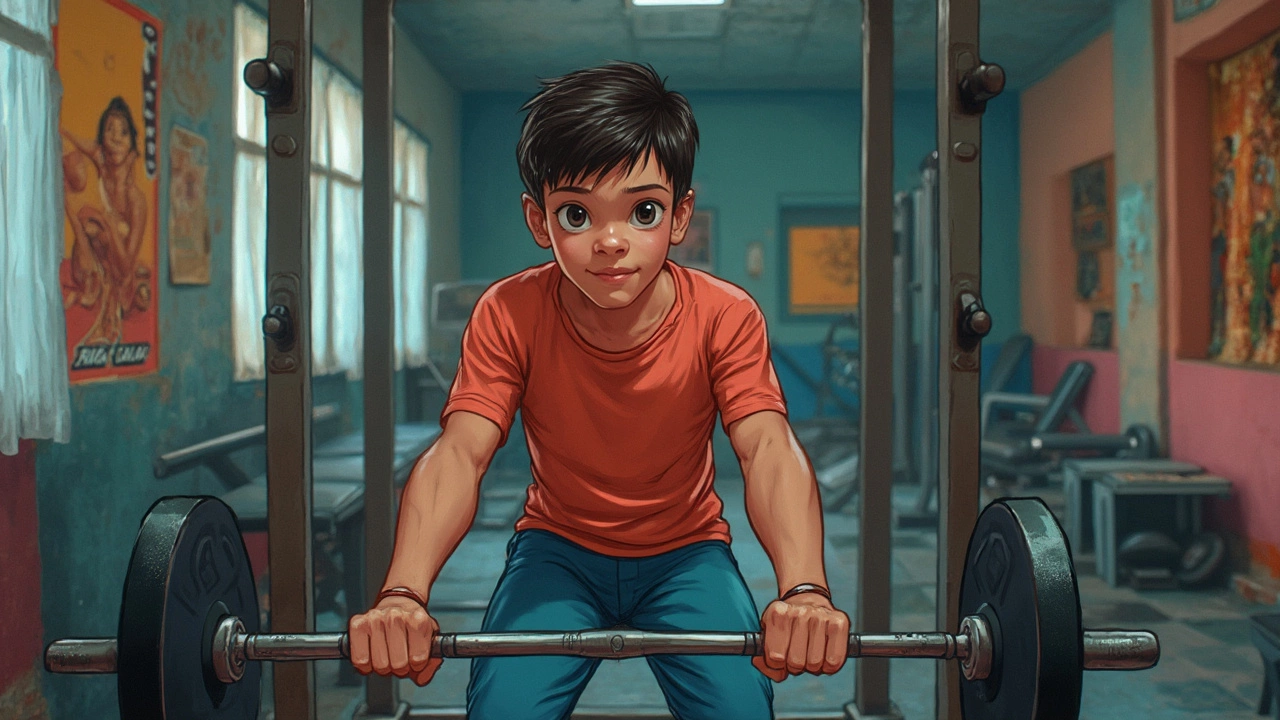Ever find yourself catching your breath after climbing just a few flights of stairs? It might be a sign that your stamina isn't quite where you'd like it to be. We're not just talking about running marathons here—stamina plays a big role in how you feel throughout the day, whether you're running around with the kids or just making it to the office without feeling zonked.
But what exactly is stamina, and why does it matter? Well, stamina is about endurance and how long you can sustain physical activity without getting totally wiped out. It's not just for athletes; it's important for anyone who wants to stay active and feel energetic. If your stamina is low, it's not just your gym routine that's affected. It can spill into your everyday activities, like running errands or enjoying your hobbies.
- Understanding Stamina and Its Importance
- Signs of Low Stamina
- Practical Tips to Boost Stamina
- Tracking Your Stamina Progress
Understanding Stamina and Its Importance
Stamina is like your body's battery life. It's how long and how well you can perform physical activities before you start to feel tired. Imagine trying to play with your kids at the park, go for a quick jog, or even just rush to catch a train—your stamina determines whether you can do these things smoothly or end up gasping for air.
The concept of stamina isn't just for athletes or gym enthusiasts. It's crucial for everyone. Think about what you do all day—walking, standing, maybe lifting stuff. All of this requires a certain level of endurance. If you've got good stamina, you'll handle these tasks without breaking a sweat. If not, even the simplest things start to feel like a chore.
Here's the deal: The better your stamina, the more you'll enjoy and get out of life. Boosting your stamina doesn't just mean you'll crush your fitness goals. It means you'll have more energy for everything else, too.
So, why does having good stamina matter so much? First, it means a more efficient cardiovascular system. This is your heart and lungs working together to supply oxygen to your muscles. Essentially, it's about improving your body's efficiency in using energy.
Here's a quick breakdown:
- Fitness: With higher stamina, your workouts will get easier over time, so you'll hit new personal records before you know it.
- Daily Life: You'll find that simple activities like climbing stairs or carrying groceries aren't as exhausting.
- Mental Health: Believe it or not, better stamina can also help reduce stress and improve mood because you're not constantly battling fatigue.
Understanding where your stamina is at can be a real game changer. Once you know how you hold up, you can make tweaks to get where you want to be. And the good news? Improving your stamina isn't as tough as it sounds. It's all about manageable changes and regular activity.
Signs of Low Stamina
Are you wondering if your stamina has hit rock bottom? There are a few tell-tale signs that you might need to perk up your endurance. Being aware of these signs can help you make the necessary lifestyle tweaks and get back on track.
One of the most obvious indicators is feeling excessively tired after minimal physical activity. Do a short jog or even a brisk walk leave you gasping for air? That's a big sign. If making it through a single set of stairs has you reaching for your inhaler, it might be time to check in on your fitness levels.
Another clue is consistently having low energy levels throughout the day. Are you finding it hard to keep your eyes open during that afternoon meeting or struggling to stay engaged with the kids' playtime? These are subtle hints that your energy levels could use a boost.
Frequent muscle soreness is another flag. While it's normal to feel a bit sore after trying a new workout, consistent aches from everyday activities aren't quite right. This could mean your body's working harder than it should be for the energy you're exerting.
Let's not forget about recovery time. If it takes you ages to bounce back after exertion, that's an indicator your endurance isn't at its peak. Ideally, you should feel ready for another round of activity within a reasonable time frame.
- Shortness of breath after simple activities
- Constant fatigue during the day
- Unusual muscle soreness
- Long recovery time post-exercise
Recognizing these signs early can help you take steps towards boosting your stamina. Remember, acknowledging these issues is the first move in making positive changes.

Practical Tips to Boost Stamina
Alright, let's talk about how you can seriously lift your stamina game without feeling like you're running a boot camp at home. First things first, get moving consistently. Sounds obvious, right? But the trick is not to overdo it. Start with activities you enjoy, whether it's walking, dancing, or cycling. Aim for at least 30 minutes a day, five times a week. When it comes to improving fitness, consistency is key.
Next up, mix it up with interval training. This involves short bursts of intense activity followed by a period of rest or lower-intensity effort. So, for example, you can sprint for 30 seconds and then walk for a minute. This not only boosts endurance but also keeps your routine interesting. Plus, it’s pretty effective for building stamina.
- Stay Hydrated: We often forget this, but dehydration can quickly sap your energy levels. Make sure to drink enough water throughout the day, especially if you’re working out or it's hot outside.
- Eat Smart: Fuel up with the right foods. Think lean proteins, whole grains, and a variety of fruits and veggies. Avoid sugary snacks that provide quick energy spikes followed by crashes.
- Rest Well: Your body needs time to recover and rebuild, so don’t skimp on sleep. Aim for 7-9 hours a night to keep your energy levels optimal.
Finally, track your progress. You might want to keep a simple journal of what activities you're doing and how you feel energy-wise. It might reveal patterns and can be really motivating when you look back and see how far you've come.
| Activity | Duration Per Week |
|---|---|
| Walking/Cycling | 150 minutes |
| Interval Training | 30 minutes |
Boosting your stamina doesn't happen overnight, but with these tips, you're on the right path to feeling more energetic day by day. Remember, it's all about making small, sustainable changes that fit into your lifestyle.
Tracking Your Stamina Progress
Now that you're working on your stamina, you might be wondering, how do you know if you're actually getting anywhere? Tracking your progress isn't just satisfying; it's super motivating. Plus, it helps you tweak your routine to keep those gains coming.
First things first, start with a baseline assessment. Note how long you can keep at an activity before you have to stop. This could be time spent running, biking, or even brisk walking. Record these times in a journal—just like a fitness diary.
One handy tool for tracking is a fitness app. These apps can log your workouts, distance, and even heart rate. Data over time can show if your stamina is getting better. Some apps even give you a nice visual graph to see your improvement.
Here are a couple of markers to jot down:
- Total Duration: Check how long you can engage in certain activities. Are you going longer this week compared to last?
- Recovery Time: Measure how long it takes for your breathing and heart rate to return to normal after exercise. Shorter times usually mean better stamina.
Also, don't forget the power of a good old-fashioned test. Try the talk test—can you hold a conversation while exercising? If yes, that's a good sign. It means you're using your energy efficiently.
Want a more interactive approach? Adding a simple fitness tracking table can highlight where you currently are and where you're heading. Something like this:
| Week | Activity Duration | Recovery Time |
|---|---|---|
| 1 | 20 mins | 5 mins |
| 4 | 40 mins | 3 mins |
Keep tracking, stay consistent with your workouts, and you'll see your stamina improve. Remember, it's a journey, not a sprint. Celebrate those small victories—they add up to big changes!





